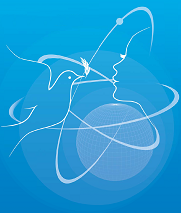Speaker
Yetunde AREGBE
(EC-JRC-IRMM, European Commission)
Description
The deliverable of any laboratory is a measurement result with stated uncertainty and traceability (ISO/IEC 17025: 2005). Measurement results, particularly in safeguards, have to be accurate, comparable and traceable to a stated reference, preferably to the SI. Results provided by operator-, safeguards- or network laboratories have to be in compliance with specific quality goals for nuclear material and environmental sample analysis. Metrological quality control tools are prerequisites to build up confidence in measurement results that have to be translated into meaningful safeguards conclusions or to demonstrate conformity of findings with declared processes. The European Commission - Joint Research Centre (EC-JRC) has dedicated facilities, laboratories and projects to provide certified nuclear reference materials (CRM), to develop reference methods and to organise inter-laboratory comparisons (ILC) in compliance with ISO Guide 34, ISO17025 and ISO17043, including respective training.
Recent examples are:
- cooperation with the JAEA to investigate on the application of Neutron Resonance Densitometry (NRD) to quantify the amount of special nuclear material in particle-like debris of melted fuel as formed in the nuclear accident in Fukushima
- training in metrology and gamma-ray spectrometry for EURATOM safeguards inspectors
- development of uranium reference particle standards under a new EC support task to the IAEA
Currently, the JRC puts major efforts in producing CRMs and conformity assessment tools for 'age-dating' of uranium and plutonium samples. They are needed for method validation in determining the date of the last chemical separation of uranium or plutonium from their daughter nuclides. These type of CRMs are not only needed in nuclear safeguards and forensics, but could support in the future a possible new type of "verification mechanism" as part of the Fissile Material Cut-off Treaty (FMCT), since measurements and measurement standards provide the basis for any verification and detection system.
| Country or International Organization | European Commission |
|---|
Author
Yetunde AREGBE
(EC-JRC-IRMM, European Commission)
Co-authors
Dr
Mikael Hult
(EC-JRC-IRMM)
Dr
Peter Schillebeeckx
(EC-JRC-IRMM)
Dr
Rozle Jakopic
(EC-JRC-IRMM)
Dr
Stephan Richter
(EC-JRC-IRMM)

